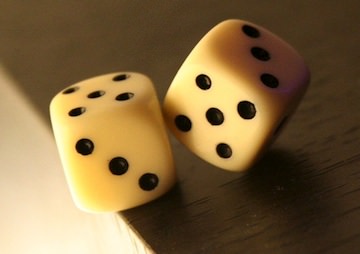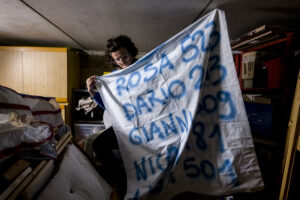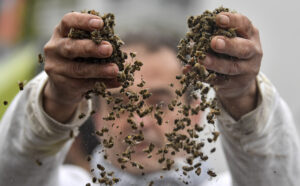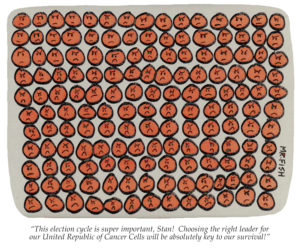Bad Luck — Not Bad Genes — the Cause of Most Cancers
Two-thirds of all cancers diagnosed in adults are caused by random mutation during the ordinary process of stem cell division, while the rest are down to genetic inheritance and lifestyle, researchers at Johns Hopkins Kimmel Cancer Center found. Photo by topher76 (CC BY-ND 2.0)
Photo by topher76 (CC BY-ND 2.0)
Photo by topher76 (CC BY-ND 2.0)
Two-thirds of all cancers diagnosed in adults are caused by random mutation during the ordinary process of stem cell division, while the rest are down to genetic inheritance and lifestyle, researchers at Johns Hopkins Kimmel Cancer Center found.
The Guardian reports:
The scientists have created a mathematical model which, they say, shows it is wrong to assume that there are such things as “good genes” that may prevent us getting cancer even though we smoke, drink heavily and carry excessive weight.
“All cancers are caused by a combination of bad luck, the environment and heredity, and we’ve created a model that may help quantify how much of these three factors contribute to cancer development,” says Bert Vogelstein, the Clayton professor of oncology at the Johns Hopkins University school of medicine and one of the authors of the paper published in the journal Science. “Cancer-free longevity in people exposed to cancer-causing agents, such as tobacco, is often attributed to their ‘good genes’, but the truth is that most of them simply had good luck.”
The scientists looked at how often stem cell division, the normal process of cell renewal, takes place in 31 different tissue types, to find out whether the sheer number of divisions can lead to more mistakes – or DNA mutations – occurring. They did not look at tissues from two of the commonest forms of cancer – breast and prostate – which are known to have particular environmental triggers, such as obesity. These were not included because they could not find reliable data on the normal division rate of stem cells in these tissues.
Biomathematician and co-author Dr. Cristian Tomasetti explained the findings with the following example: “Let’s say my parents smoked all their lives and they never got lung cancer. If I strongly believed cancer was only environment, or the genes that are inherited, then since my parents didn’t get cancer I may think I must have good genes.
“So I would think it would be OK to smoke. On the contrary, our study says no, my parents were just extremely lucky and played a very dangerous game.”
— Posted by Alexander Reed Kelly.
Your support matters…Independent journalism is under threat and overshadowed by heavily funded mainstream media.
You can help level the playing field. Become a member.
Your tax-deductible contribution keeps us digging beneath the headlines to give you thought-provoking, investigative reporting and analysis that unearths what's really happening- without compromise.
Give today to support our courageous, independent journalists.






You need to be a supporter to comment.
There are currently no responses to this article.
Be the first to respond.